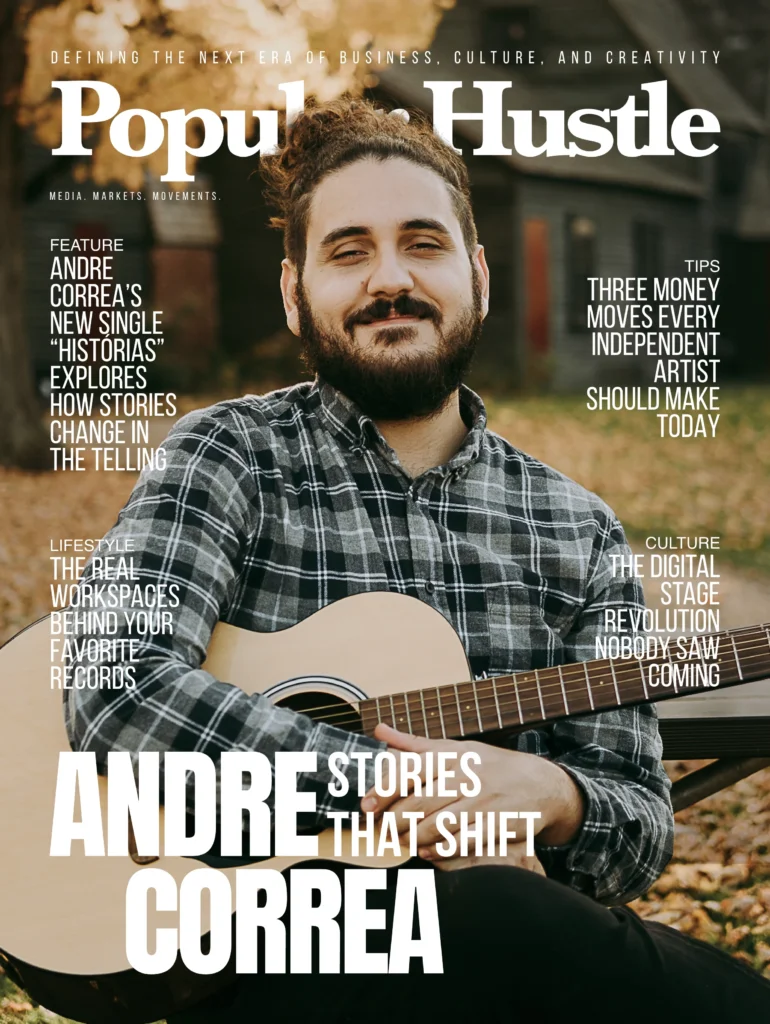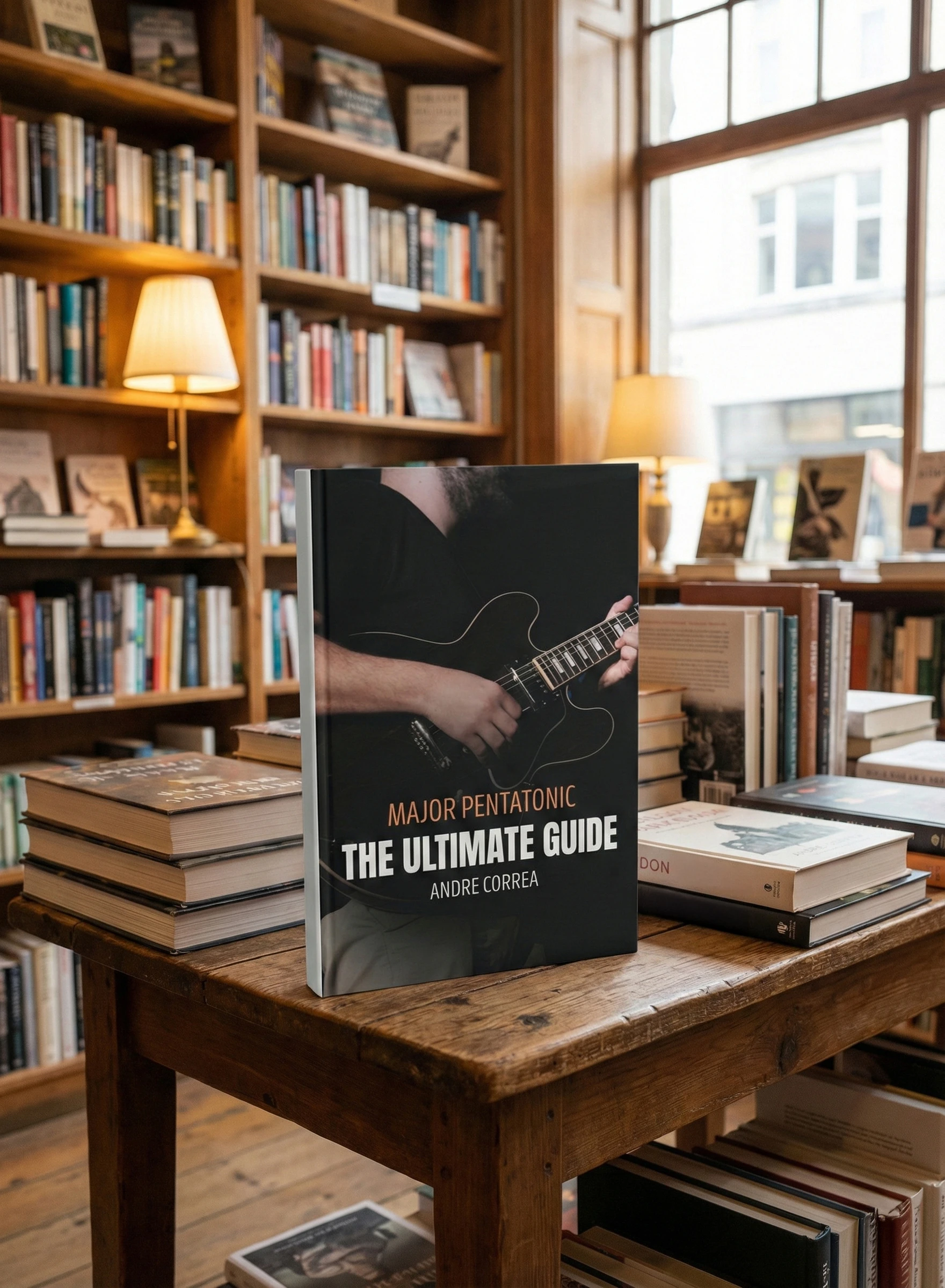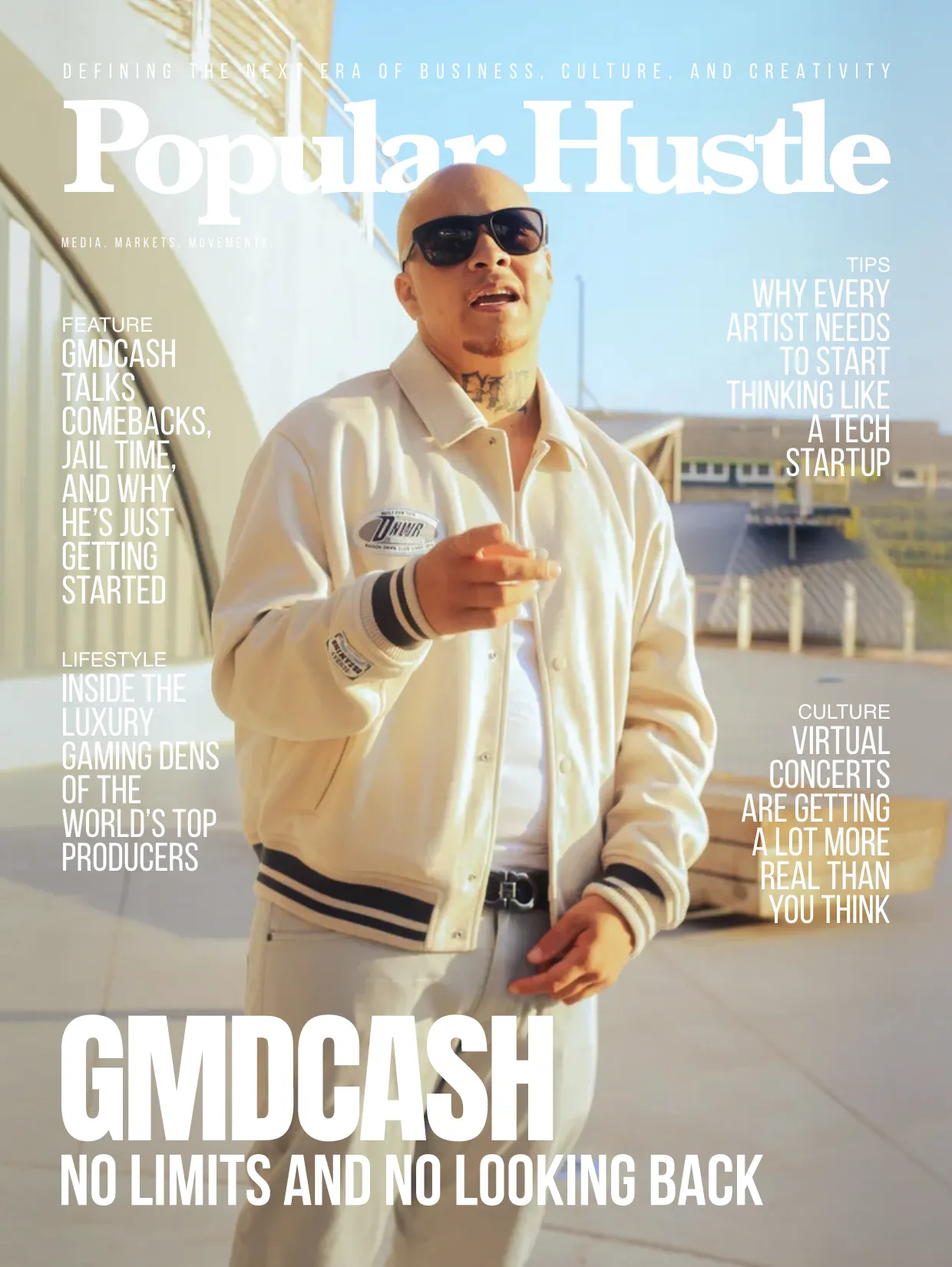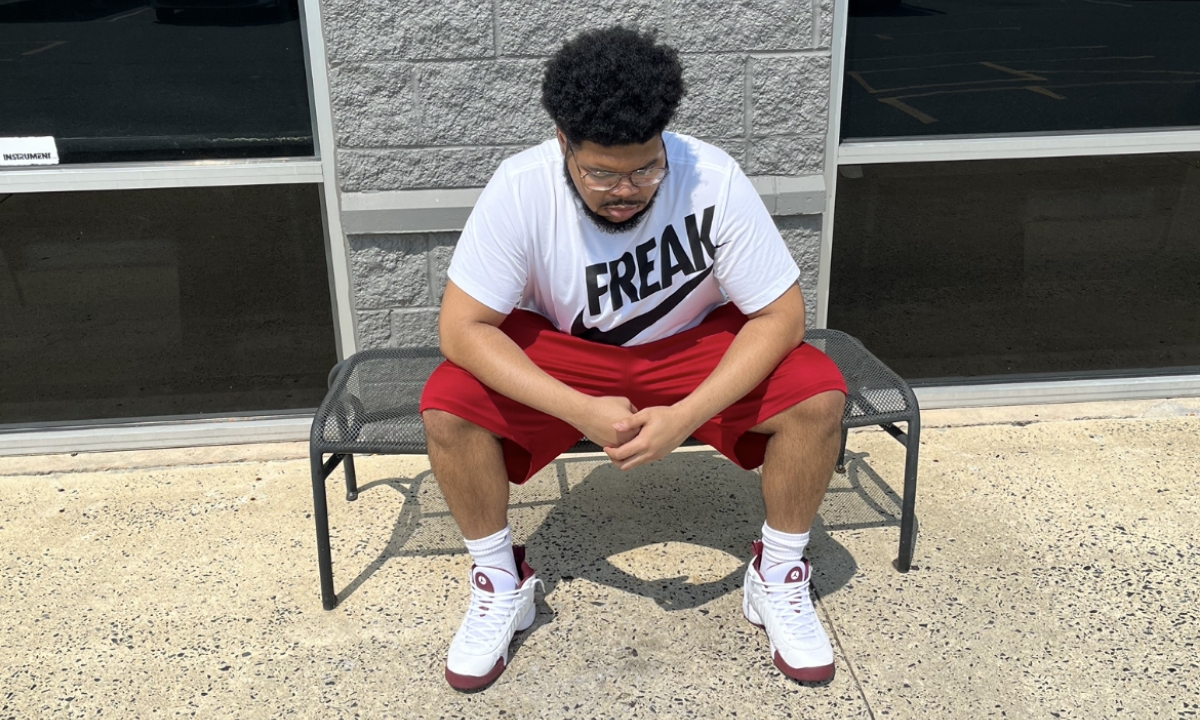Entertainment
A Candid Conversation with Innovative Artist Sapien Medicine
Published
10 months agoon

Close your eyes and listen. Really listen. Beyond the everyday noise lies a realm where audio becomes something more—a space where frequencies can heal, transform, and evolve consciousness itself. This is where you’ll find Sapien Medicine, whose work has captivated over millions on YouTube and continues to expand across Spotify, Apple Music, Amazon Music, and Beatport. Their creations exist in that precise moment where ambient music meets energetic transformation.
Since its inception in 2011, this fascinating audio project has challenged listeners to think differently about music’s potential. What started as an experimental venture has blossomed into something much more significant. In this candid conversation, we delve into the philosophy, evolution, and creative process that makes Sapien Medicine unique.
First off, how would you describe your music to someone who’s never heard it before?
To a first-time listener, I’d describe Sapien Medicine’s music as something that feels like more than music. Don’t expect traditional songs with structure or lyrics. Many tracks are ambient, meditative, or gently melodic, designed more for immersion than entertainment. Some sound futuristic or cosmic, others feel earthy and healing. But all of them carry an energetic undercurrent that feels like it’s working on you.
That’s intriguing. Could you explain what exactly Sapien Medicine is?
What we’re doing here is really bringing together different worlds—science, spirituality, energy work—and creating something that takes listeners on a journey. It’s audio-based, but it’s designed to work on multiple levels… to help evolve not just your body, but your mind and soul too.
Was there a specific moment when you realized music could be more than just sound?
That moment of realization really came with the creation of my first album, ‘Tuath Dé‘. I didn’t just want to make music—I wanted to craft an energetic experience that told a story. Each track is like a chapter in a journey: from the hopeful arrival of the Tuath Dé, to their retreat into the sídhe mounds after defeat, and finally, to the mysterious and transformative realm of the Otherworld. It wasn’t just about sound—it was about capturing emotion, history, and movement through energy.
What’s your hope for listeners when they experience your art?
Sometimes, it’s just about that deep sigh of relief. A track that brings your nervous system back online, quiets the noise, and reminds you that you’re more than the chaos around you. People listen because they believe there’s more to reality than meets the eye—and more to healing and evolution than what we’ve been taught. Sapien Medicine offers a way to explore that ‘more’.
If someone’s new to your work, where should they start?
‘Depths of your Soul‘ from ‘Album 4’ is incredibly nostalgic to me. It’s about a deep appreciation of your entire being and by extension the world. The ‘Angelic Blessings‘ album has 12 tracks, with each track inviting a personal blessing and guidance. And ‘The Flow‘ focuses on Chi Environment Saturation. These are great all-day repeat kind of tracks.
I’ve noticed your recent albums have quite a different feel. What inspired that shift?
The last few albums were inspired by Cartridge1987 and Waveshaper so it’s more like boss battles in old video games. I absolutely enjoy the nostalgia of it. I suppose it is definitely a tribute to childhood and an anthem for the future. But other than the few experimental albums, I think the sound always shifts back to lofi and jazz.
Your creative output is remarkably consistent. How do you stay in that creative flow?
I think you need to allow yourself to be inspired, also getting into the flow as Rick Ruben calls it, is a great way to let the ideas pour out and come to life. I have reached a point where I am absolutely enjoying what I do, I love living in that creative space. I enjoy waking up and just getting into that zone and going all out in creation. I think, enjoy what you do. Then work becomes play, an exciting enjoyable thing.
Looking Ahead
Perhaps what’s most striking about Sapien Medicine isn’t the growing collection of works or the upcoming jazzy easy-listening album—it’s the quiet reminder that music can still surprise us. In a world overflowing with algorithmic playlists and manufactured hits, here’s an artist who has found that delicate space where sound becomes something sacred, something healing.
We often forget that our ancestors understood music as medicine, as magic, as a doorway to other worlds. Listening to Sapien Medicine’s work, you get the sense that maybe they weren’t so far off after all. Maybe there’s still something in the vibrations of sound that can touch the deepest parts of who we are—if only we remember how to listen.
This article contains branded content provided by a third party. The views expressed in this article are solely those of the content creator or sponsor and do not necessarily reflect the opinions or editorial stance of Popular Hustle.

You may like
-


Andre Correa’s New Single “Histórias” Explores How Stories Change in the Telling
-


Miixed Realities Proves Medical Billing Doesn’t Have to Be a Black Hole
-


GMDCASH Talks Comebacks, Jail Time, and Why He’s Just Getting Started
-


Meet Lil Deezull, the Cambridge Rapper Finding His Moment
-


Dennis Dewall Reboards the Spy Genre with International Thriller ‘THE TRAIN’
-


Saynt Ego on Grief, Mental Health, and Learning to Sit With the Noise
Entertainment
Andre Correa’s New Single “Histórias” Explores How Stories Change in the Telling
Published
4 hours agoon
February 2, 2026
The best instrumental music makes you feel something you can’t quite name. Brazilian guitarist Andre Correa’s new single “Histórias” works like that, building a narrative without a single word by exploring how stories transform as they pass between people.
The track, which translates to “Stories” in English, draws from baião and fusion to create something that unfolds like a conversation you’re overhearing. Correa structured the composition around the concept of a game of telephone, where a single idea gets reinterpreted through different emotional filters until it returns to something clearer than where it started. The piece swells and contracts, moving through restlessness and conflict before landing somewhere more settled and direct.

“The work invites the listener to create their own interpretation,” Correa explains. “Each person hears a different story within the same music.”
It’s a fitting approach for a guitarist who treats composition as personal archaeology. Correa, a Berklee College of Music graduate now based in Orlando, doesn’t start with theory or structure when he writes. He starts with whatever he’s actually living through, picking up his guitar and trying to translate feeling into sound. One idea leads to another until the piece reveals its own direction. “I only feel comfortable when I can see the full picture and everything feels cohesive, like the music is telling one clear story,” he says.

That process shaped his debut album “Seasons,” released November 29, 2025, which documents his years in Boston through seven original tracks. But “Histórias,” releasing in 2026, pushes further into abstraction, examining not just personal experience but the nature of how experience gets communicated and distorted over time. Multiple musical “voices” emerge from a single theme, creating layers that explore the relationship between noise, interpretation, and truth.

Correa was born in Valinhos, São Paulo, and raised in Campinas, learning keyboard from his father at eight before picking up guitar at twelve. Playing in church communities taught him early that music works best as service rather than spectacle, a belief that stuck through his formal training at Berklee, where he studied with faculty including Danilo Pérez, John Patitucci, and Randy Roos. His time at the Berklee Global Jazz Institute took him into hospitals and rehabilitation centers, reinforcing his sense that music exists to create space for something meaningful to happen.
The immigrant experience of rebuilding life in the United States has informed his writing as much as any classroom. Moving countries, learning to navigate unfamiliar systems, processing the particular loneliness of starting over in a new place: all of it feeds into work that prioritizes emotional honesty over technical display.
“I don’t think of my work as just songs or compositions,” Correa says. “I think of each piece as a small narrative, a space where melody, harmony, rhythm, and improvisation work together to express something human: faith, doubt, change, longing, gratitude, conflict, hope.”
Beyond his recording projects, Correa is preparing to launch an educational book series called “The Ultimate Guide,” with the first volume, “Major Pentatonic: The Ultimate Guide,” scheduled for release in January 2026. The series applies his FCA Method, a framework focused on helping guitarists develop their own musical identity rather than just memorizing patterns. He currently performs regularly at Jazz Tastings in Orlando, where he develops his sound and refines his artistic direction in a live setting.

Correa isn’t chasing anything grand with his music. If someone walks away feeling a little more present, a little more honest with themselves, or simply more connected to their own emotions, he figures the work has done what it was supposed to do.
“Histórias” rewards that kind of attention. The track doesn’t demand you understand it on first listen. It just asks you to sit with it long enough to find whatever story you needed to hear.
Stream Andre Correa’s music on Spotify and Apple Music, and follow his work on Instagram, YouTube, Facebook, TikTok, and LinkedIn. Visit his website for more.
Entertainment
GMDCASH Talks Comebacks, Jail Time, and Why He’s Just Getting Started
Published
2 weeks agoon
January 19, 2026
Some artists talk about grinding. Others actually live it. Calvin Davenport, better known as GMDCASH, falls squarely into the second category. The Seattle-born rapper has navigated the kind of obstacles that would make most people quit, including incarceration, legal restrictions on his content, and the predatory side of an industry that loves to take advantage of independent artists. He’s still here, though, and with previous coverage in outlets like Earmilk and The Source already under his belt, his recent output suggests he’s figured out how to turn setbacks into fuel.
His latest single “Bump A Whore Pt. 2,” released January 16th, 2026, sees him team up with MikeJack3200 and Frostydasnowmann for a polished follow-up to the original. But it was his comeback track “I’m The Product,” dropped at the top of the year, that set the tone. That title isn’t just a song name. It’s a thesis statement. The track positions GMDCASH as someone who’s done waiting for opportunities to find him. Instead, he’s become the opportunity. With a new EP on the way, he’s building momentum on his own terms.
We caught up with GMDCASH to talk about what drives him, how he creates, and what’s next.

Take us back to a specific moment when you knew this was what you were going to do. What happened?
I think after getting out of jail I geared my focus towards my music career. I really needed a positive outlet, something that woke me up, drove me, and inspired me and the people around me. Music did that for me.
If someone’s never heard your music before, how would you describe what you do?
I would say my music is for everyone. I have a pretty big catalog and it’s forever expanding, so if you don’t hear something you like, check back every now and again. I’m sure something will catch your ear. And if not, it’s more than music. It’s my life story. I want people to be inspired by my music. I want people to hear it and know that anything is possible.
Who or what shaped your creative voice the most?
My family is a big part of my influence. Both my parents and some of my family members have been in the industry. Growing up in a musical household is number one. I have a unique style. I couldn’t say one thing shaped my creative voice, and I feel like my creativity is forever changing every time I’m in the studio.
Walk us through how you actually create.
Honestly, I book a session and spend four hours minimum in the studio. Sometimes I don’t even book. I’ll just feel something and call a studio and get to work. Most beats are made as soon as I pull up. The producer gives me the sample, I approve, he starts the loop. Most of my lyrics are life experience, so it’s not hard for me to make a song. I just rap how I’m feeling. Sometimes it’s a smooth process, others take time. Then they mix and master and I schedule the release.
What’s something you had to figure out the hard way?
I think going to jail at the end of the year was really a wake up call. I have to protect myself and keep people around me who want what’s really best for me, not just have anyone around me.
Is there anyone you’d love to work with down the line?
I really would like to collab with Hurricane Wisdom.
Where are you at in your music career right now?
This is just the beginning. I feel there’s so much more to come. Music is my passion. I don’t think I’m leaving the mic anytime soon.
What are you working on that you’re excited about?
I’m excited for my next EP coming out early this year. I focused on songs with uplifting, positive energy and the GMD, Get Money Daily, vibe. I’m hoping to do at least two shows before the middle of the year. I’m just excited about the possibility of the new year and all the good things it has to bring.
If there’s one thing you want readers to take away from this feature, what is it?
I’m an up and coming Seattle rapper. Check out my music, be inspired, follow my page, interact, share your thoughts.

What stands out about GMDCASH isn’t the adversity itself. Plenty of artists have tough stories. It’s the clarity that came out of it. He’s not chasing validation or waiting for a label to cosign his vision. Beyond music, he has plans to move into artist management and eventually relocate abroad. For listeners who connect with authenticity over polish, that long-term thinking is the whole point.
Stream GMDCASH on Spotify, Youtube, and Apple Music, visit his official website, and follow him on Instagram.
Entertainment
Meet Lil Deezull, the Cambridge Rapper Finding His Moment
Published
2 weeks agoon
January 19, 2026
Some artists spend years waiting for their moment without realizing it already came and went. Lil Deezull knows what that feels like. He’s been rapping since 2015, freestyling with friends in Cambridge, Maryland long before he thought of it as a career. It took seven years and a viral track before he understood what he’d been sitting on.
The Cambridge rapper, born August 16, 2005, didn’t start out with a plan. His first actual track, “Big Booty,” got passed around locally and gave him his first taste of what connecting with an audience felt like. But it wasn’t until 2022 that everything clicked. A track called “Purple Rain” went viral, and suddenly the kid who’d been rapping for fun had people actually paying attention.

“Since then I started taking my music career seriously,” Lil Deezull says. That shift shows in his output. His 2024 album, For All The Snow Bunnies, marked his biggest project to date and helped establish him beyond his Eastern Shore hometown.
The numbers tell part of the story. His track “Suffering” has pulled over 106,000 plays with solid engagement, while newer releases like “NO KINGS” show he’s building consistent momentum rather than chasing one-off hits. He works primarily in hip-hop and rap, pulling from the melodic trap style popularized by artists like The Kid LAROI and Polo G, but he’s not interested in staying in one lane.
“I am a multi genre artist and I make music for everyone,” he explains. Recently, that’s meant studying country artists like Morgan Wallen, looking for ways to expand his reach beyond rap’s typical audience. It’s an unconventional move for a young rapper from Maryland, but it speaks to how he thinks about his career.
His lyrics draw from personal experience. Daily life, observations, things he sees and hears in Cambridge. He wants listeners to find something relatable.
“My hope is that people will relate to me and that my music can help them get through whatever they are going through in life,” Lil Deezull says.

His next project, Maryland Man, drops May 16 and represents a return to collaboration after a solo-focused 2024. The album features fellow Cambridge rappers Lil Mop and Murda2x alongside international collaborator Brixton, who appeared on For All The Snow Bunnies. It’s a deliberate effort to spotlight his hometown’s scene while building on last year’s momentum.
At 19, Lil Deezull has already been making music for nearly a decade. He’s had time to figure out what he wants to say, and he’s also had time to accumulate regrets. “Don’t be like me and have a life full of missed opportunities,” he says. “Live your life and take any chance you get.”
It’s a surprising bit of self-awareness from someone still early in his career, but it tracks with why he finally got serious after “Purple Rain” took off. He’d spent seven years treating music like a hobby while the moment kept knocking. Now he’s answering the door.
Follow Lil Deezull on SoundCloud, Instagram, and YouTube.



Andre Correa’s New Single “Histórias” Explores How Stories Change in the Telling

Miixed Realities Proves Medical Billing Doesn’t Have to Be a Black Hole

GMDCASH Talks Comebacks, Jail Time, and Why He’s Just Getting Started

Meet Lil Deezull, the Cambridge Rapper Finding His Moment

Dennis Dewall Reboards the Spy Genre with International Thriller ‘THE TRAIN’

Saynt Ego on Grief, Mental Health, and Learning to Sit With the Noise

Marloma Talks Learning to Stop Writing in Isolation and Trust the Chaos

Zizzo World Is Building Momentum That’s Hard to Ignore

Yash Kapoor Wants His Records To Feel Like Moments, Not Just Music

Inside the Amazon Reinstatement Process: The aSellingSecrets Approach

Golden Bay Beach Hotel — A Luxury Beachfront Escape in Larnaca, Cyprus

Nodust Writes His Lyrics Last and That’s Exactly the Point

Finding Strength in Walking Away Is the Real Message Behind Judy Pearson’s New Single

Joaquina’s “Freno” Captures the Push and Pull of Letting Go

Young Romanian Entrepreneur Explores Lisbon’s Thriving Startup Scene

Jason Luv Dominates Charts While Inspiring New Wave of Multi Career Artists

Harley West | Inside the Mind of a Social Media Star on the Rise

Raw Fishing | Franklin Seeber, Known As “Raww Fishing” Youtuber Story

Jordana Lajoie Transforms Montreal Roots into Hollywood Success Story

A New Hollywood Icon Emerges in Madelyn Cline

Who is Isaiah Silva – The Story Behind The Music

Tefi Valenzuela Pours Her Heart into New Song About Breaking Free

G FACE Releases His New Single “All up,” and It’s Fire

Gearshift to Stardom: Nikhael Neil’s Revolutionary Journey in the Automotive Industry

Kaia Ra | Perseverance That Built a Best-Selling Author

Holly Valentine | Social Media Influencer & Star Success Story

Kate Katzman | Breaking Into Hollywood and Embracing Change

Thara Prashad | Singer Evolves to Yoga & Mediation Superstar

Tadgh Walsh – How This Young Entrepreneur is Making a Name for Himself

King Lil G | West Coast Hip Hop Genius Rises to Face With Ease

Tefi Valenzuela Pours Her Heart into New Song About Breaking Free

Kate Katzman | Breaking Into Hollywood and Embracing Change

Holly Valentine | Social Media Influencer & Star Success Story

Kaia Ra | Perseverance That Built a Best-Selling Author

Lil Ugly Baby XXX’s “Who?” – The Mixtape to Boost Your Playlist

Samuel Chewning Explains How Fitness Should Be A Personal Journey

Trending
-

 Business4 years ago
Business4 years agoJason Luv Dominates Charts While Inspiring New Wave of Multi Career Artists
-

 Entertainment3 years ago
Entertainment3 years agoHarley West | Inside the Mind of a Social Media Star on the Rise
-

 Culture4 years ago
Culture4 years agoRaw Fishing | Franklin Seeber, Known As “Raww Fishing” Youtuber Story
-

 Culture2 years ago
Culture2 years agoJordana Lajoie Transforms Montreal Roots into Hollywood Success Story
-

 Culture2 years ago
Culture2 years agoA New Hollywood Icon Emerges in Madelyn Cline
-

 Entertainment1 year ago
Entertainment1 year agoWho is Isaiah Silva – The Story Behind The Music
-

 Entertainment3 years ago
Entertainment3 years agoTefi Valenzuela Pours Her Heart into New Song About Breaking Free
-

 Culture4 years ago
Culture4 years agoG FACE Releases His New Single “All up,” and It’s Fire

